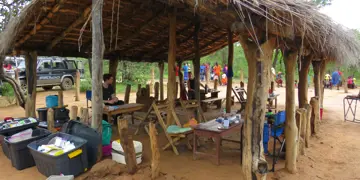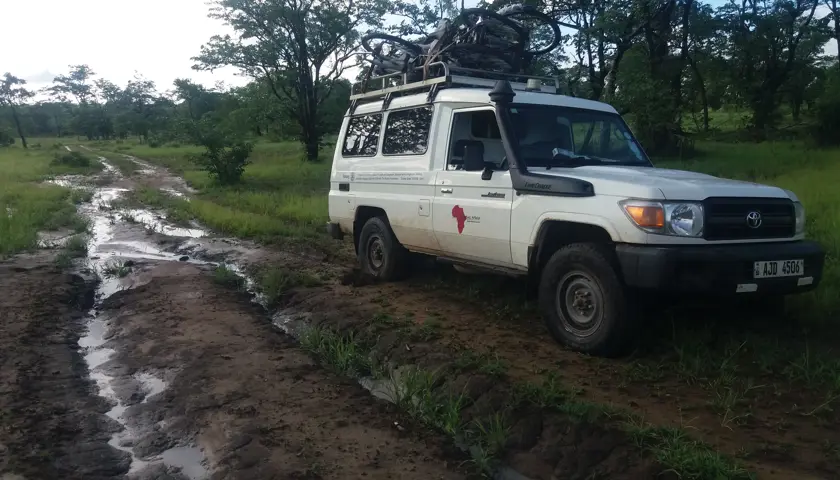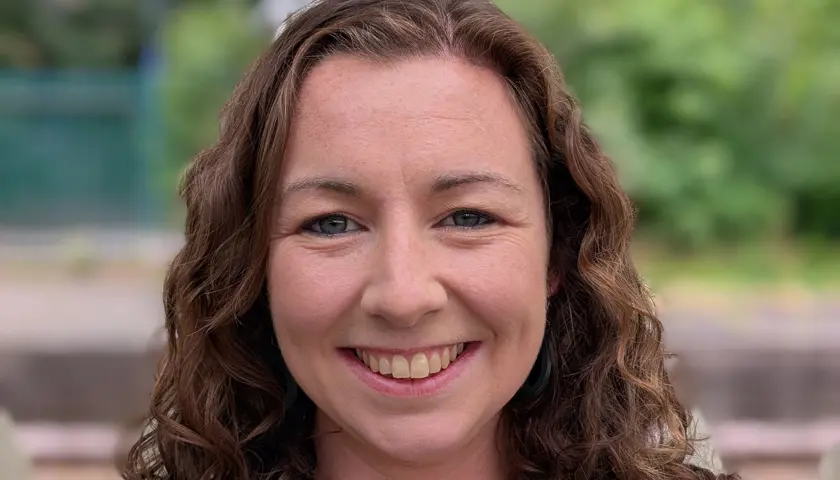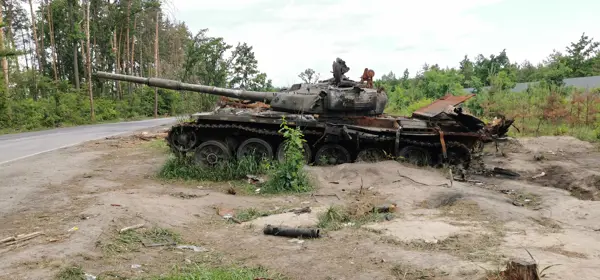Ready for anything
Ready for anything
While her vehicle could become stuck in the mud, the rest of Kerry Greenan's volunteering experience in Africa sounds intensely liberating, seeing a wide range of medicine, which has prepared her well for life back in the UK. Tim Tonkin reports
For East London GP Kerry Greenan, a difficult commute to work these days might involve slow-moving traffic or getting stuck on the District Line.
Four years ago, it was different. She was working as a volunteer in Zambia for healthcare advocacy organisation OCA (On Call Africa).
As part of its mission, OCA works with international volunteers to address the poor access to quality healthcare services in Zambia’s remote rural communities, an approach which often sees staff traversing treacherous terrain to get to where they are needed.
For Dr Greenan and her colleagues, this literally meant spending a night in the jungle after their four-by-four vehicles became hopelessly mired in deep mud.
‘We felt we were in the middle of nowhere, but word had obviously spread that these cars are stuck in the mud, and so people from the community walked over and tried to help us out,’ recalls Dr Greenan.
‘When it became clear we wouldn’t be getting out, they bought stoves and started cooking things so it was almost like a small event.’
Role of volunteers
Founded in 2010 by a number of individuals, including British doctors Kirsty and Simon Tolmie, OCA initially operated as a medical outreach programme delivering episodic care services to those living away from urban centres.
In the intervening years, the charity has evolved and expanded the scope of its operations, with OCA having worked with Zambia’s Ministry of Health to produce a criteria tool to assess standards and identify areas of improvement in healthcare provision and infrastructure.
One aspect which has remained unchanged since the beginning, however, is the charity’s collaboration with medical volunteers from overseas.
‘Volunteering has been the heartbeat of the work that we do,’ says OCA CEO Nkandu Chikonde.
‘We evolved from providing mobile clinic approaches outreach, which is like almost 15 or 16 years to where we are now, where we are an established voice organisation that works in rural communities to provide community health services.
‘More importantly, we have become a strong voice around strengthening health systems in rural communities and ensuring there are quality services being delivered in remote areas.’
As a registered charity, the importance of the OCA’s work is something that has been recognised by a number of organisations including the BMA.
A repeated recipient of financial support via the BMA Giving programme, the association most recently awarded OCA £7,000 to help fund a skills-sharing programme, which saw 12 UK doctors work alongside Zambian health teams as part of a three-month placement.
We would have to travel on roads where it had been raining and a lot of them were just a mud bath
Kerry Greenan
This funding, much like the volunteers some of it has supported, has been important in allowing OCA to expand its aims and activities.
‘It has been very helpful in increasing our ability to reach as many community members as possible,’ says Mr Chikonde.
‘From simple things, such as helping to pay for things like a vehicle, we can then take a nurse into a community, a community that would otherwise not be able to come to a [health] facility.’
Dr Greenan’s own experiences as a volunteer for OCA have been as varied as they have been rewarding.
Having undertaken an elective in Tanzania during her medical training, Dr Greenan initially became aware of the organisation’s work during a year out in between her second and third years of GP training.
Following an on-boarding and training session in London, Dr Greenan found herself flying out to Zambia arriving in February 2020 towards the end of the country’s rainy season.
Although her first stint with OCA was ultimately cut short by the arrival of the COVID-19 pandemic and the closing of international borders, Dr Greenan remembers well the challenging yet rewarding work she undertook.
‘During my first visit we were doing outreach clinics so on the Monday we would get all the equipment and kit ready and sterilise water and things to take with us,’ explains Dr Greenan.
‘We would set off either Monday afternoon or sometimes early on Tuesday morning to get to the rural health centre, where we would camp.
‘We would have to travel on roads where it had been raining and a lot of them were just a mud bath and you would often get stuck for an hour or so just trying to get out.’
A constant feature of OCA’s approach has been to embed overseas volunteer doctors alongside medical professionals, nurses and community health workers, with all participants learning and benefiting from each other’s skills and experience in helping to deliver care.
‘Just before the clinic started, we might do a health promotion session with whoever was waiting in the queue,’ recalls Dr Greenan.
‘You might pick a topic, minor ailments in children for example, and deliver that alongside the community health workers who could help with translating and sort of contextualising it.
‘We would see patients alongside a community health worker because, in that part of Zambia, there are around 40 different languages spoken, although most people spoke Tonga.
‘The community workers would be able to assist with translation but because we were also providing training to them, they would sometimes take the lead in a consultation, while we would be supervising and suggesting and then doing the subsequent prescribing and documentation.’
Limited medication
During her placement in 2020, Dr Greenan was one of four overseas medical volunteers each of whom would typically see 20 to 25 patients in a daily session.
While many of the illnesses and health conditions she encountered among patients were commonplace and treatable, limitations to supplies of medication and follow-up care proved challenging.
‘We had quite an unwell child who had cerebral malaria at one point and we saw a lot of things like pellagra. However, the majority of what we dealt with was coughs, colds and musculoskeletal issues,’ says Dr Greenan.
‘We would often give treatments such as paracetamol and ibuprofen, medicines which are obviously accessible without prescription in the UK, but which are often difficult to obtain for those living in Zambia’s isolated rural communities.'
‘It was a case of, sort of trying to manage with what we had,’ she adds.
‘If people came in with high blood pressure, we could give them a month of anti-hypertensive medication but you couldn’t guarantee that they would be able to get an ongoing prescription.
‘All you could really do in those cases was advise patients to go to their rural health centres to make sure that they got ongoing care.’
It was a case of, sort of trying to manage with what we had
Kerry Greenan
After returning to the UK and resuming her GP training, Dr Greenan returned to Zambia in 2021 this time staying for a full three months.
During the intervening period between her first and second placements with the charity, OCA had adopted a radically different approach to its work through its Community Health Improvement Programme.
Working with other partner organisations and the Zambian health ministry, the programme aims to take a holistic and sustainable approach to healthcare services through the training of community health workers, quality improvement assessments of healthcare facilities and improving infrastructure.
Whereas her previous time with OCA had seen her helping to deliver outreach healthcare services to rural communities, her second period of volunteering saw her take a different approach, operating out of a single rural health centre (pictured top) rather than conducting mobile clinics.
‘A lot of what we were doing was around quality improvement processes,’ says Dr Greenan.
‘I and another volunteer were based at Kanyanga which is a rural health post and worked alongside two nurses and one clinic officer.
‘We would help them do clinics in the morning, but we would do things like take stock of the pharmacy and assist with health assessments.
‘Doing a health-needs assessment with the rural health centre would mean talking to the community, to the village head men, the staff and patients, and assessing sort of what things were happening and what things could be improved.’
During her second placement, Dr Greenan helped deliver an antibiotic stewardship programme and supported efforts that saw the creation of a purpose-built shelter facility for expectant mothers at the Kanyanga health post in Zambia’s Southern Province.
‘Whenever we have volunteers, we are always very excited to have them,’ explains Mr Chikonde.
‘Although we [OCA] have now started to our vision of promoting systemic change in healthcare at a community level, we’ve also stuck to delivering quality services in remote areas.
‘Community health workers and other staff know that when we have these volunteers, they help to make such a difference and lessen the burden in delivering care.
‘They are now also influencing and helping in the design of programmes, strategies and guidelines around healthcare that we can seek to introduce and make change at national level.’
Invaluable experience
Since her time in Zambia, Dr Greenan is now working as a GP in Bromley-by-Bow in east London where she serves as the clinical lead for population health in neighbourhoods in Tower Hamlets.
While geographically a world away from her time volunteering in Africa, she believes her experience with OCA has helped develop and inform her approach to medicine.
‘We’ve run quite a lot of projects where we develop things with our community and with our patients,’ she explains.
‘One of the things that I’ve taken from my time in Zambia is that sense of not assuming you [as a doctor] know everything and to understand and appreciate how a health system works within a community, you need to involve people who stand to benefit.’
(Image credits: Kerry Greenan)





